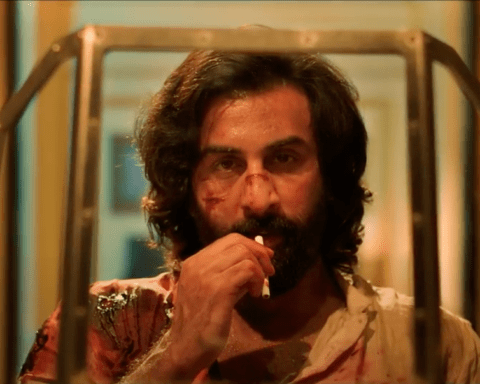“I’m afraid for my son to grow up.”
The words come via a 23-year-old woman, who sits with her six-month-old son in her arms. These words – words that no mother should have to say – drive home a heavy point.
She’s one of a dozen or so members of the Say Word youth journalism program that runs weekly in Scarborough, out of East Metro Youth Services – a group I’ve been privileged enough to coordinate since 2008.
Her comment comes after she and the group are asked to read Desmond Cole’s recently published Toronto Life article, “The Skin I’m In: I’ve been interrogated by police more than 50 times – all because I’m black.” Raising her son in the over-policed and often negatively stigmatized neighbourhood of Kingston-Galloway in Scarborough, the young mom doesn’t want her son to grow up and be victim to the racial profiling Cole’s article brings to light.
[A] student – albeit a young Caucasian man who self-identified as a resident of Richmond Hill – asked the teaching assistant, very seriously, “Does racial profiling actually exist?” I answered, out of turn: “Yes, it does exist – just not for you.”
Reading Cole’s work shifted almost the entire afternoon’s program to an open sharing circle – nearly every participant had a personal account (or several) of being carded, negative encounters with the police or witnessing disturbing interactions between police and youth in the community.
Stories of “fitting the description” and of being searched without cause, questioned and arrested abounded.
The Say Word group analyzes articles on a weekly basis so that the participants are able to think critically about how they will write their own pieces for the annual by-youth, for-youth magazine they put together for Scarborough. The consensus on Cole’s work: he hit the nail on the head – everything he wrote in that article resonated.
Racial Profiling Is Real
The afternoon’s discussion made me reflect on the many instances of negative experiences with the police I myself have had over the years growing up in Scarborough.
The disproportionate carding of young black men adds yet another layer to a narrative Canada – a country often touted as an inclusive, diverse, multicultural mosaic – seems all too comfortable with. It’s the narrative of racial profiling, over-policing and criminalizing racialized people and communities.
It also made me flash back to a moment in one of my Intro to Criminology classes at York University, when a student – albeit a young Caucasian man who self-identified as a resident of Richmond Hill – asked the teaching assistant, very seriously, “Does racial profiling actually exist?”
I answered, out of turn: “Yes, it does exist – just not for you.”
If only he could have been with me on that Wednesday afternoon, he could have heard first-hand from the young people most affected: yes, racial profiling does exist – in a big way.
Racial profiling by Toronto Police runs deeper than the highly controversial, and deeply troubling, carding practice – which disproportionately targets young black men. So while Toronto mayor John Tory’s announcement this past weekend that he would like to put an end to carding is a step in the right direction, he’s not going to be let off the hook that easily.
The disproportionate carding of young black men adds yet another layer to a narrative Canada – a country often touted as an inclusive, diverse, multicultural mosaic – seems all too comfortable with. It’s the narrative of racial profiling, over-policing and criminalizing racialized people and communities.
Tory often speaks to the fact that carding is disrespectful and hurtful and has caused him a lot of internal conflict since he took over office, but I’ve yet to hear him really explore the deeply entrenched systemic racism that is the root cause of the deplorable practice.
Actions Speak Louder Than Words
It’s not enough to just say, “Let’s end carding.” Tory, the Toronto Police Services Board, and newly appointed Police Chief Mark Saunders, need to dig deeper and take a hard look at the city’s police force. They need to do a lot of unpacking. They need to start asking the tough questions; they need to start listening to the community.
Perhaps most importantly, they need to hear, in a very real way, from the youth and young adults that I spend Wednesday afternoons with (and others with similar stories). And when they do, they need to not dismiss their experiences. They need to seriously take into consideration the irreparable scars each of those experiences leaves on a select population of our city’s young people, and the black community at large.
If that doesn’t happen then I guarantee that, even if Tory and the Police Services Board move to officially end carding at the June 18 board meeting, the real changes that Toronto’s black community deserves also will not happen. The disproportionate targeting, the racial profiling, will persist. The only difference is that it won’t be documented.
A native of Toronto’s Scarborough community, Priya is a journalist and editor with a passion for mentoring young people and thinking critically about matters of social justice. She is the co-founder and editor-in-chief of Urbanology Magazine, a part-time instructor at the Humber College J-School and coordinator of Scarborough’s Say Word youth journalism program, a program she was integral in getting off the ground. She is NCM’s production editor.





